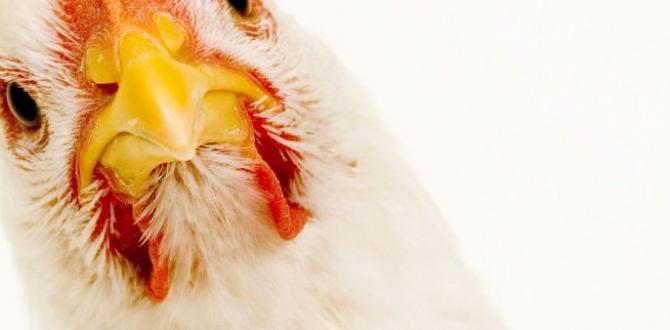Imagine you find a bird’s nest with eggs in your backyard. But there’s no sign of a father bird! You might wonder, do female birds always lay eggs even if they’re alone? Surprisingly, some species do. Nature is full of wonders and mysteries.
Have you ever heard about chickens? Even if a hen doesn’t meet a rooster, she still lays eggs. This fascinating fact isn’t just true for chickens. Some reptiles and fish do the same. Isn’t that intriguing?
Why do females lay eggs without a mate? Maybe it’s just a normal part of their cycle. Or perhaps it’s a backup plan, just in case a male arrives later. Nature sure has some clever tricks!
Next time you see an egg, remember it’s not always about having a partner. In nature, there’s always something to learn.

Do Unpaired Female Birds Lay Eggs Consistently?

Do Females Always Lay Eggs Even If Unpaired?
Have you ever wondered if female birds or reptiles lay eggs without a mate? It’s an interesting question! In the world of birds, like chickens, some females lay eggs without needing a male. These eggs aren’t fertile, though, meaning no chicks will hatch. Among reptiles, some species can also lay eggs but, like birds, they need a mate for the eggs to develop into young ones. Isn’t nature fascinating?
Do Unpaired Female Birds Lay Eggs? Facts and Myths
Exploration of egglaying in the absence of a mate. Common misconceptions about avian reproduction.
Unmatched female birds can still surprise us with eggs! While some might imagine that a female bird needs a male buddy to lay eggs, this isn’t always true. Much like our trusty backyard chickens, they might lay eggs to keep their routine in check. However, don’t expect these eggs to hatch into chirpy chicks without a male’s contribution. It’s a common myth that all female birds need a mate to lay eggs. In reality, some species do this solo, while others prefer to keep eggs under wraps until they find a partner.
| Bird Species | Single Egg Laying | Needs Mate for Eggs |
|---|---|---|
| Chickens | Yes | No |
| Parakeets | Yes | Sometimes |
| Cardinals | No | Yes |
So, next time you see unpaired birds laying eggs, know that they’re not waiting for Prince Charming to swoop in!
Species-Specific Egg-Laying Behaviors
Examination of different bird species’ egglaying tendencies. Case studies: parakeets, chickens, and passerines.
Birds have unique ways of laying eggs. Some cannot lay without a mate, while others can. Let’s see how different birds behave:
- Parakeets: Parakeets may lay eggs without a mate. These eggs won’t hatch since they’re not fertilized.
- Chickens: Hens lay eggs regularly, even without a rooster.
- Passerines: Most need a mate to lay eggs.
Do female birds need a mate to lay eggs?
No, not always. Birds like chickens and parakeets can lay eggs without a mate. But others, like many passerines, need a partner. Each bird species has its own routine.
Environmental and Psychological Factors Influencing Egg Production
Impact of environment and stress on egglaying. Role of social dynamics and interactions.
How do environment and stress influence egg-laying?
Environmental changes can affect egg-laying in birds. A calm, safe place helps them feel secure. Stress from noise or threats might stop them from laying eggs. Unfavorable conditions can delay or prevent egg production.
Role of Social Dynamics
Being around others affects birds too. Some feel lonely if no friends are nearby. Having company can encourage or discourage them to lay eggs. For some species, not having a mate may cause them not to lay eggs at all.
Think of it like this: Imagine feeling nervous at a big loud party. Now, would you feel ready to study for a test there? Birds also need the right environment to do certain things, like laying eggs.
Implications for Bird Owners and Conservationists
Best practices for managing egglaying in pet birds. Conservation concerns related to unpaired egglaying.
Owning a bird can be egg-citing, literally! Managing egg-laying for unpaired female birds is important for pet owners. Stress, diet, and environment play key roles in how often they lay eggs. To prevent or manage this, ensure a balanced diet, provide engaging toys, and create a stable environment. As Charlie the cockatiel might say, “A happy bird is a less egg-hausted bird!”
In terms of conservation, unpaired egg-laying means more unhatched eggs are left behind, which can affect certain bird populations. For conservationists, monitoring and protecting these nests is essential. By supporting these birds’ natural habitats, we help maintain ecological balance. Consider this: “Save a nest, save a future.” It’s not just about the birds, but the entire ecosystem they support.
| Best Practices | Conservation Concerns |
|---|---|
| Balanced Diet | Preserve Habitats |
| Engaging Toys | Monitor Nests |
| Stable Environment | Protect Ecosystems |
Health Considerations for Egg-Laying Females
Potential health risks associated with egg production. Tips for maintaining the wellbeing of laying birds.
Imagine laying an egg each morning without a partner! Many birds do this, and it’s like playing ‘egg-spress’ all the time. But not having a rooster buddy can sometimes hatch problems. These birds need extra calcium to keep bones strong, and a quiet nest to beat stress. A bit of exercise, like wing-stretch aerobics, works wonders too. It’s egg-citing to make sure all birdies stay sunny side up and healthy!
| Health Tip | Benefit |
|---|---|
| Calcium-rich meals | Prevents thin eggshells |
| Peaceful environment | Reduces stress |
| Daily exercise | Enhances strength |
Strategies for Managing Unpaired Egg-Laying
Techniques to discourage excessive egg production. Nutritional and environmental modifications to support bird health.
Unpaired egg-laying can seem endless, like popcorn in a microwave. To manage this, a few tricks can help dampen the enthusiasm. First, **limit daylight exposure** to trick the bird’s body clock. A little less light helps control egg production. Also, consider introducing toys or perch rearrangements to distract and stimulate the bird. Changes in the environment can work wonders.
Nutrition plays a big role too. High-protein diets might encourage more eggs, so opting for a balanced, moderate diet is wise. Adding vitamins and minerals supports overall health. Remember, happy birds living in clean spaces often feel less compelled to lay. A happy home equals a happy bird!
| Strategy | Tip |
|---|---|
| Light Management | Provide 10-12 hours of continuous darkness |
| Environmental Enrichment | Add new toys or rearrange cage elements |
| Diet Control | Offer a balanced diet high in essential nutrients |
Conclusion
Females don’t always lay eggs without a mate. Some need a mate to produce eggs. Others can lay unfertilized eggs. It depends on the species. If you’re curious, explore more about animal reproduction. Remember, learning is fun, and nature has many surprises. Keep discovering!
FAQs
What Factors Influence Whether Unpaired Female Animals Will Lay Eggs?
Whether unpaired female animals lay eggs depends on a few things. Sometimes, they still lay eggs even without a mate. Hormones in their bodies can make this happen. The season, like spring or summer, can also affect this. Lastly, the type of animal matters too. Ducks and chickens sometimes lay eggs without needing a mate.
Do Specific Species Of Females Lay Infertile Eggs Without Mating?
Yes, some species can lay eggs without mating. For example, female chickens can lay unfertilized eggs without a rooster. These eggs won’t hatch into chicks. Some insects and reptiles also lay eggs that don’t become babies unless they mate. It’s a way some animals continue their life cycle.
How Does The Presence Or Absence Of A Mate Affect Egg Laying In Birds?
Having a mate helps birds lay eggs more easily. When there is a mate, birds feel safe and happy. This makes them want to lay eggs. Without a mate, some birds might not lay eggs because they feel lonely or unsafe.
Are There Any Physiological Or Environmental Triggers That Cause Unpaired Females To Lay Eggs?
Yes, sometimes unpaired female birds can lay eggs even without a mate. This can happen because of things like the time of year or changes in the environment, like more daylight. Inside their bodies, hormones can also make them ready to lay eggs. If they feel safe and have enough food, they might lay eggs too.
In What Ways Do The Behaviors Of Unpaired Egg-Laying Females Differ From Those Of Paired Females?
Unpaired egg-laying females might have to do more work alone. They need to find safe places for their eggs and protect them on their own. On the other hand, paired females have a partner to help with these tasks. This means paired females might have more time to rest or find food, as their partner can help keep the eggs safe.
